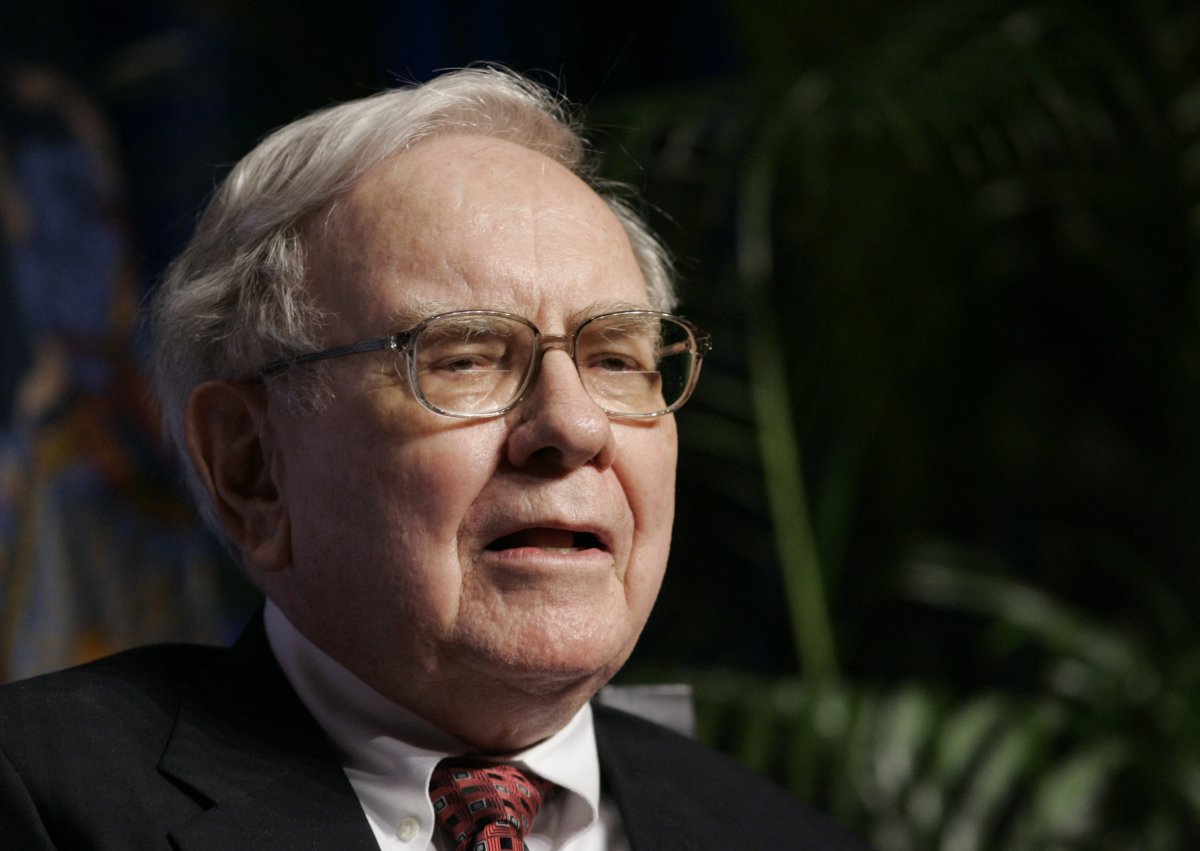The antitrust lawsuits against Visa, Mastercard, Amazon and Apple filed by the Biden administration might harm their shareholders, including the company of legendary investor Warren Buffett, Berkshire Hathaway, an expert told Newsweek.
Nearly half of the Omaha-headquartered holding company's $364 billion portfolio—42.9 percent—is invested in Apple, with Berkshire Hathaway currently owning a 5.9 percent stake in the tech company.
Read more: How to Invest Like Warren Buffett
After the Vanguard Group, Berkshire Hathaway is Apple's biggest backer. Buffett's company also has holdings in both Visa and Mastercard, though combined they make up less than 1 percent of its total assets, as reported by The Motley Fool in December. A modest 0.5 percent of Berkshire Hathaway's portfolio rests in Amazon.
These four companies have all been served antitrust lawsuits by the Biden administration, as the government has focused on empowering U.S. competition authorities to counteract the growing influence of a handful of companies on the country's market.

Last month, the Justice Department and 16 other state and district attorneys general said they were suing Apple for monopolization or attempted monopolization of smartphone markets in violation of Section 2 of the Sherman Act. In September last year, the Federal Trade Commission and 17 state attorneys general sued Amazon for its "ongoing pattern of illegal conduct" to block competition.
Visa and Mastercard reached a $30 billion settlement with U.S. merchants in March over a long-running antitrust suit alleging the two credit card companies were conspiring to overcharge the Square payment platform, raising retail prices for consumers in return. The settlement, under which the two companies agree to reduce intercharge fees, still needs to receive court approval.
Steve H. Hanke, a Professor of Applied Economics at The Johns Hopkins University who served on President Ronald Reagan's Council of Economic Advisers, told Newsweek that the Biden administration's antitrust policies can be considered inspired by the New Brandeis movement.
This is a school of thought that opposes the idea that modern antitrust law should focus on customer welfare, advocating instead for a broader anti-monopoly approach concerned with private power and the promotion of competition in the market.
"The President has appointed a 'neo-Brandeisian troika' of Tim Wu (Special Adviser, Competition and Technology Policy), Lina Khan (FTC Chair), and Jonathan Kanter (Asst AG, DoJ Antitrust Division)," Hanke said.
"The 'troika' takes a very simplistic antitrust perspective that, in short, 'big is bad,' he continued, adding that the Biden administration "seems to ignore the fact that many firms become big because they serve customers with what they want, and do so more effectively than their rivals do."
Wu, Khan and Kanter have focused on "fighting proposed mergers and revising or ignoring previous merger guidelines," Hanke said. "As time goes on, I believe the 'troika' will focus more on so-called 'anti-competitive practices,' and are likely to attempt to regulate the behavior of outfits like Visa, Mastercard, and Apple more tightly."
Should these efforts prevail, he said, "they will blunt the success of those companies that are more tightly regulated, and harm their shareholders, including Berkshire Hathaway."
But other experts think the consequences of the antitrust lawsuit on investors might be much less significant. Yuri Khodjamirian, CFA, Chief Investment Officer at Tema ETFs, told Newsweek that Visa and Mastercard have so far navigated the scrutiny of regulators successfully, while they believe the case against Apple is "weak."
Read more: Compare the Best Growth Stocks
"Our view in general is that Visa and Mastercard have navigated the landscape well and weathered caps on various fees," Khodjamirian said. "These have not prevented growth continuing in both operations. The reality is that these payment networks collect a very small charge with the majority of interchange going to the issuing and accepting banks. This creates a stable system. Hence we think these sorts of regulatory actions are absolutely a risk but they are unlikely to break up the existing system."
When it comes to the Department of Justice's case against Apple, Khodjamirian said regulators will have to prove that customers of iPhones and developers both suffered because of Apple's monopoly power over the iPhone.
"This simply isn't the case, as both highly value the platform that Apple has created," he said. "We think Apple will agree to certain changes, for example opening up access to make phones more interoperable with other possible payments systems," he continued. "These trials also last a very long time. The key for markets is surprises and we don't think there was anything bad in the DOJ documents."
Ultimately, Khodjamirian believes that Buffett's portfolio is likely to be unaffected by the lawsuits, "with a small risk that further pressure continues."
Uncommon Knowledge
Newsweek is committed to challenging conventional wisdom and finding connections in the search for common ground.
Newsweek is committed to challenging conventional wisdom and finding connections in the search for common ground.
About the writer
Giulia Carbonaro is a Newsweek Reporter based in London, U.K. Her focus is on U.S. and European politics, global affairs ... Read more
To read how Newsweek uses AI as a newsroom tool, Click here.








